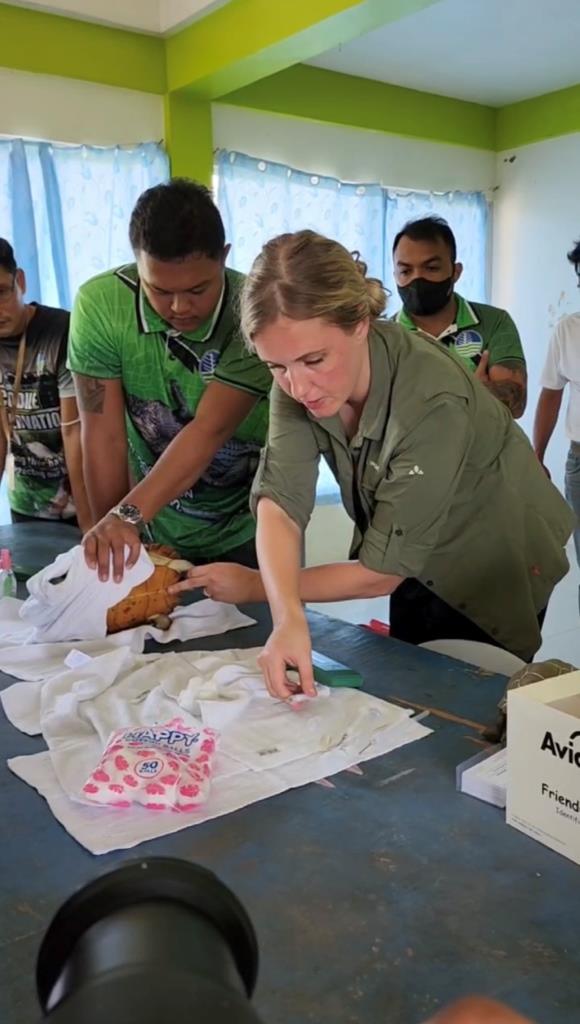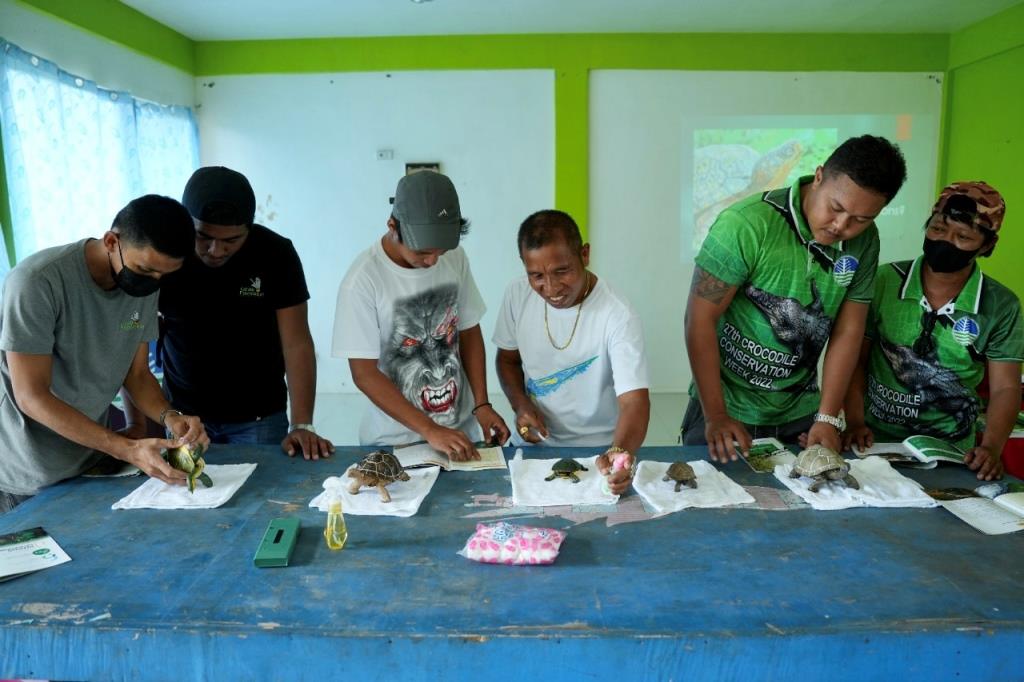Puerto Princesa City, the Philippines:
Indigenous rangers, government agency officials, and NGO workers in Palawan have been upskilled to protect threatened forest turtle species from poaching through the use of microchipping, a technology used to help identify if wildlife has been trafficked.
Funded by the National Geographic Society, the full-day workshop demonstration was held at the Palawan Wildlife Rescue and Conservation Center (PWRCC) in Puerto Princesa City.
Organizer Centre for Sustainability PH (CS) emphasized how the application of microchipping technology can help forest frontliners combat poaching of turtles and other wildlife in Palawan, a global biodiversity hotspot.
“Putting simple technologies like these directly into the hands of frontline indigenous and local rangers, best positioned to protect our last wild places, is critical for ensuring effective and equitable protection of Palawan island, a UNESCO Man & Biosphere Reserve,” says CS Co-Founder and National Geographic Explorer KM Reyes. “Easily-transferable skills like these enhance and assist the work of rangers, government, and NGOs to deter poaching of endemic and globally threatened species.”
Palawan is home to the endemic and critically endangered Palawan Forest Turtle (Siebenrockiella leytensis), as well as Southeast Asian Box Turtle (Cuoro amboinensis) and Asian Leaf Turtle (Cyclemis dentata), all of which are threatened by the global exotic pet trade, and are heavily trafficked.
In 2015, over 4,400 poached forest turtles, mostly Palawan Forest Turtles, were seized on their way out of Palawan, destined for the global exotic pet trade. Experts from Katala Foundation estimated it to be approximately the entire wild population of the species.
The turtle microchipping workshop builds upon CS’ ongoing effort to upskill indigenous and local rangers to conduct biodiversity surveys of the island’s rich variety of rare and threatened biota while on patrol.
It included demonstrations on live turtles and talks by international scientists, as well as distribution of a bi-lingual turtle microchipping guidebook and equipment.
“If trafficked turtles are seized by customs, the officers can scan the turtles – and if there’s a microchip, they can cross-reference a database to prove definitively that this turtle was poached from the wild, exactly where it came from, and where they should return it, ” explains Dr Astrid Andersson from Hong Kong, Conservation Biologist and National Geographic Explorer, who conducted the demonstration. “It helps provide evidence for the prosecution of turtle traffickers, informs the rehabilitation and release of these turtles, and works as a deterrent to further poaching.”
Officer In Charge-Project Manager Gina Varilla of PWRCC added, “The workshop was a most welcome avenue for participants especially for PWRCC staff because it enhanced their knowledge on the significance of microchipping technology. They were oriented on the way of providing secure, reliable, and permanent identification of wildlife animals.”
The workshop was attended by representatives from the Puerto Princesa City Environment and Natural Resources Office, Katala Foundation Inc., Large Marine Vertebrates Institute Philippines, Provincial Veterinary Office of Palawan, Palawan Council for Sustainable Development and PWRCC.
Centre for Sustainability PH (CS) is a women-led, youth, environmental organisation from Palawan, known as the Philippines’ Last Biodiversity Frontier. Mission: Conserve the Philippines’ last remaining 3% of pristine rainforest through legal establishment of protected areas, through community organising, scientific research, and political lobbying. Pillars: Land Conservation, Reforestation, Citizen Science. CS’ work comes From communities, is For communities, and goes To communities. In 2017, CS spearheaded the multi-sectoral effort to legally establish the Cleopatra’s Needle Critical Habitat under the Philippine Wildlife Act, the Philippines’ biggest critical habitat, ancestral domain of the disappearing Batak tribe, and home to 61 Palawan endemic species, 31 globally threatened species, including the #1 poached animal globally, the Pangolin.













0 Comments